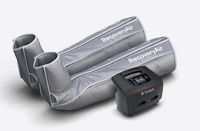3. NEW RUNNER:
Running store gift card -- The best way to start running is with a great pair of running shoes that fit a your specific needs. For any new runner, I recommend first to visit your local specialty running store to have your running gait analyzed for free then have a knowledgeable rep recommend the optimal shoes for you in at least three different brands.
Running Shoes -- I have used a variety of brands in the last 29 years I have been racing. Feel free to reach out to me with any questions of my favorites. As mentioned above, the best first step is visiting your local running store to get fitted and explore a few recommendations. Currently, in my rotation as I train often in the trails are 361 LYNX or 361 ELEOS for the roads.
4. SECRET SANTA:Earbuds / Headphones - JLab have several price points to choose from as low as $30 or $199 for your premium pairs. It is a perfect gift for anyone and even a great stocking stuffer. All their products deliver quality sound and have been my favorite earbuds for over a decade. Discount: NADIA15
Bath Sets - I have been using SBR SPORTS for over a decade. Founded by Karen locally in Irvine, SBR has supported triathletes and athletes worldwide to stay fresh and clean. I use their Trislide or skinslick (same product only different size and color bottle) as anti-chaffing and Triswim daily. With gentle ingredients, Triswim is safe for kids or pets too. Mix and match your gift bundles. There are traveler's sets, too. Discount: NADIA - saves 20% off
Another newly launched beautiful bath line is Oli Oli Beauty. Founded in 2025 by SBR Sports founder's son, Matt Schmit, it brings beauty and science together in the Laguna line.
5. INJURED RUNNER:Pain management patches - StaminaPro Patches are electroceutical charged patches with electrons from a variety of nutrients shown to reduce inflammation leading to faster recovery and performance. Some of the nutrients are branched chain amino acids, essential amino acids, arnica, beet root, bioperine, COQ10, glutathione, green tea extract, Mg, MSM, Olive Leaf, Omega-3, Tumeric, Vitamin D, and more. My entire family uses them not only during running, but also if we tweak something during a non-running related activity. Discount: NADIA15
Roll On Muscle Relief -- We've tried several CBD products and roll ons. Our favorite is Mons Pura with 750mg CBD Arnica, Menthol, Camphor and more. My dad loves his for every time he walks, hikes, or runs. Discount: NADIA20
Bodyweight support system - LEVER Movement device attaches to your treadmill and can take up to 45 pounds off your bodyweight allowing you to focus on your form, return from injury safely, and/or ramp up your mileage safely. This was one of the key tools I used after my right meniscus bucket handle tear in January 2021. Discount: NADIA - saves 15% off
6. Runner that Needs Helps with Nutrition: Hydrogels - Maurten Starter Kit allows an athlete to try several of their products in training to help explore what works best for the individual. The hydrogel technology is fast absorbing by increase the rate of gastric emptying into the first segment of the small intestine where the majority of absorption occurs. The Feed offers a great option to try out Maurten and other nutrition products in a goodie bag as well with periodic discounts. It is always a great idea to explore what works best for you and then fine tune your strategy in training for race day. For our goal races, Tony, my dad, and I use Maurten gels and drinkmixes.
Geldrink - Chargel offers a unique blend of a gel and drink in one. Available in 3 flavors of apple, white grape, and strawberry, it is a caffeine-free 6.3oz pouch with 45g of carbs for calories and hydration in one. You don't need to drink it all at once either as the cap is resealable. In the summer, I love to freeze mine to have a yummy cold treat mid-run on the trails. Discount: NADIA15
Protein - I am a huge advocate of consuming more quality protein in our daily diets from food sources. Additionally, protein powders can help us fill in the gaps. Cofounded by Dan and Cameron in 2022, RNWY is a great protein with creatine in Chocolate and Acai. They also have collagen and newly released salty carb line. Discount NADIA15. Another great family-owned protein line with CBD is by Mons Pura. Try their vanilla ice cream flavor or chocolate mousse. Discount: NADIA20.
Meal Delivery Service - Order a week supply of meals for your runner to help them have healthy, tasty meal options at home to save time on cooking or cleaning on those busy days. Designed for athletes, I use Trifecta Nutrition meal delivery service with a 10 meal plan delivered every other Friday. Meals are vacuumed sealed, never frozen, last up to 6-10 days in the fridge or 3 months frozen. Explore from over 100 meal choices from clean, paleo, keto, and plant based categories. Ships to all 50 states. Discount NADIA40 saves 40% off your first month.
7. RUNNING CLUB FRIENDS:Running Accessories -- We can never have too many. I love the options Ultimate Direction accessories offers from socks, mittens, gaiters, buffs, performance hats and ice bandanas, which helped me tremendously at my Palm Springs Triathlon in 98F. Discount: NADIA - save 20% off.
Hydration -- a box of their favorite hydration is always an amazing gift for anyone! We will always need it and a continuous supply of it. My favorite electrolyte is Electrolit found now in zero calorie form and powders for easy to travel. There are over 15 flavors that you can find at your local grocery store, 7-11 or gas station. My favorite sparkling water is Splendor all the way from the high altitude andes mountains (Cotopaxi) in Ecuador, where my parents are from. They have still and sparkling water infused with amazing health benefits from the Andes. Discount NADIA15. My favorite health drink is Pickle Juice. Several benefits to consume daily or on the go. You can purchase in mini travel size, regular 8oz or gallon refills. Discount: NADIA20
Caffeine -- A gift card to their favorite coffee shop or Vital 4U pouches! I have been using the health caffeine shots by Vital 4U for also over a decade. Family-owned based out of Palm Springs and founded in 1987, they have several flavors to choose from in a convenient pouch with 150-185mg of caffeine in each pouch. It is also very helpful when you need a midday pick me up or on those long drives and road trips. Discount: NADIA10
8. RUNNING COACH:
Referrals - Word of mouth is always the best way runners can connect with coaches that care and go the extra mile for you. I sincerely appreciate all my athletes because most if not all have come to me by word of mouth because they trust who recommended. Give your coach a shout out on social media or refer a friend how helpful she or he has been. It's always a great gift that keeps giving.
Spa day pass -- Everyone can use an extra spa day. There are also now great wellness centers that are tailored for athletes with community events. Two I attend that I would recommend are Renew Performance Center in Pasadena offering contrast therapy, red light therapy, floatation therapy (sensory deprivation tank), compression, and massage services. Another great wellness center is Mohawk Wellness Collective in Echo Park. Owner Jacob does so much for his community, it is a great space to support.
9. TRAVELING RUNNER:Massage gun -- There are many to choose from on the market. Different brands and sizes. Gift yourself or your loved one a high quality massage tool to use at home or travel. My favorite is the Theragun PRO that I have gifted for myself, Tony and my dad. I have now included them in my wellness space for my Altitude Training Series recently launched. I also have the mini's for all of us. All are TSA friendly.
Recovery sandals -- What we wear in between our training sessions can either hinder or support our recovery. Aim to wear supportive footwear and/or sandals when traveling or throughout the day if you are on your feet all day. I love to use my recovery sandals by
VELOUS either their stylish flip sandal or slides. Foot care during and in between sessions is important for not only performance but also for longevity and joint health. Please steer clear from ballerina flats, flat flip flops or heels over 3 inches. There are proven studies shown how these negatively impact our joint health after periods of prolonged use. Love your feet. Discount:
NADIA2026 - saves 20% off.
10. TRAIL RUNNER:Hydration Vests, Packs, Handheld Bottles - I LOVE trail running, mountain running, and have Ultimate Direction as my hydration pack on the trails. Finding the most comfortable pack or handheld for you can be daunting. Decide on what size (storage capacity) you need then choose your color. All their packs have several choices with multiple pockets and bottle options. I have all the main sizes of storage capacity from 5L for racing, 10L, 15L, and 30L for my all day adventures. Discount: NADIA - saves 20% off.
11. MOTHER RUNNER:
Vital 4U supplements - A baby jogger would be the best! Then the gift of health as their sleep is often disrupted. Supplements can very helpful in filling in some of the gaps in our daily diet. Vital 4U is my go-to every single day at home or when I travel. It is pre-packaged packets of 12 pills with over 75 nutrients to help support your daily needs. I have been using them for over a decade and also have both my parents on them, too. I rarely get sick despite often travel and frequent event schedule of 30-40 events per year. Supplements help support a healthy lifestyle. Discount: NADIA10
DGP For Pets supplements: We cannot forget our dogmoms. Give them the gift of health and nutrients that support their pet's mobility and flexibility with DGP. It includes ingredients such as collagen, wheatgrass, boswellia and more. Discount NADIA
12. YOURSELF:
Massage -- You deserve to gift yourself the things that allow you to heal and renew. Often at the end of the work day, we make the mistake to say "I need a ___" to decompress and it may not be the right choice. I am grateful to have found
Paulina Valenzuela who has helped me elevate my training these past 3 years as I if I was ten years younger. You can find her in Monrovia, Echo Park at Mohawk, or house calls. Contact her to give yourself the gift of healing you deserve. She offers 30% off discount for your first session.































